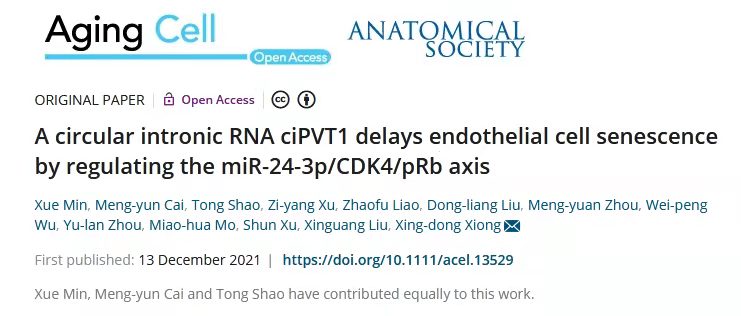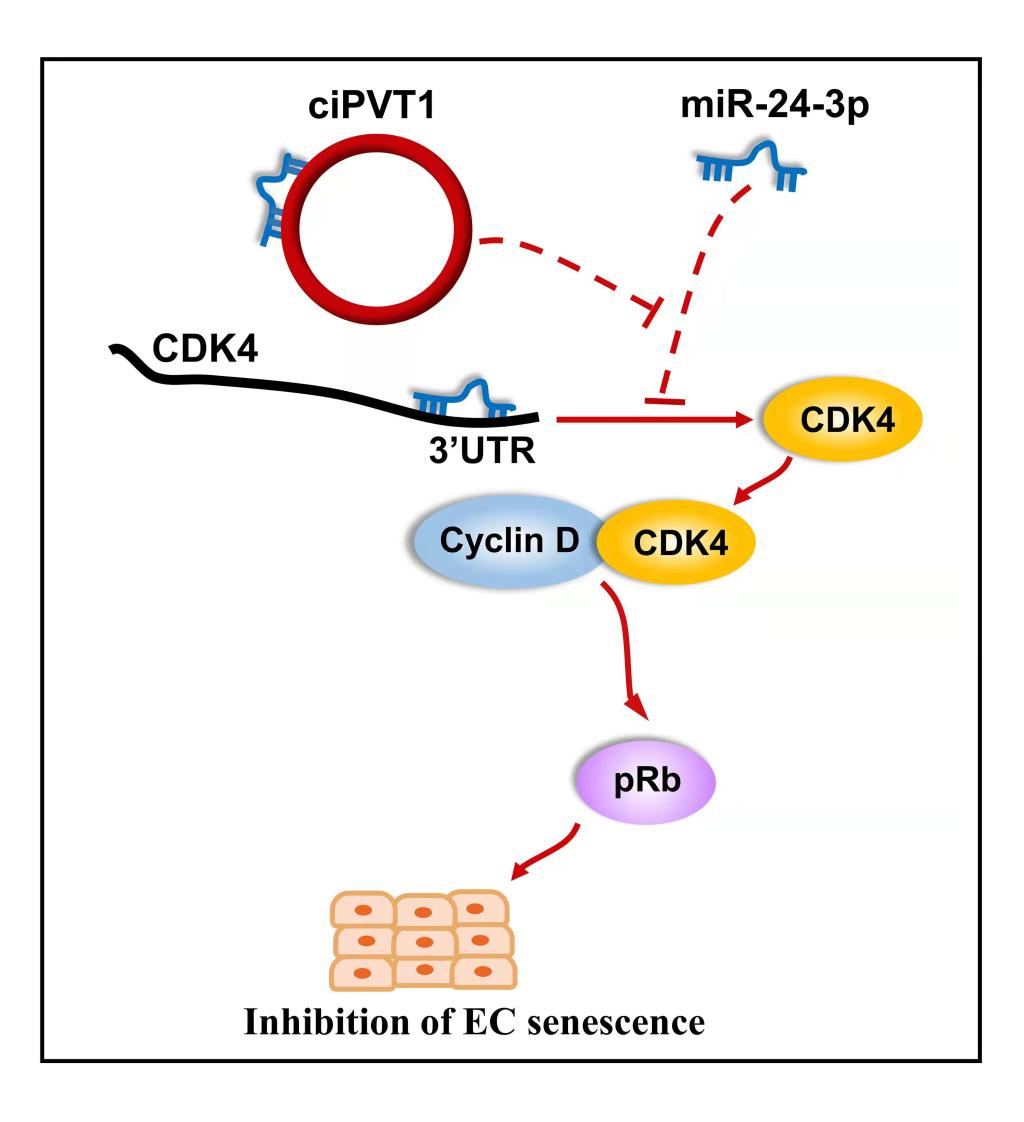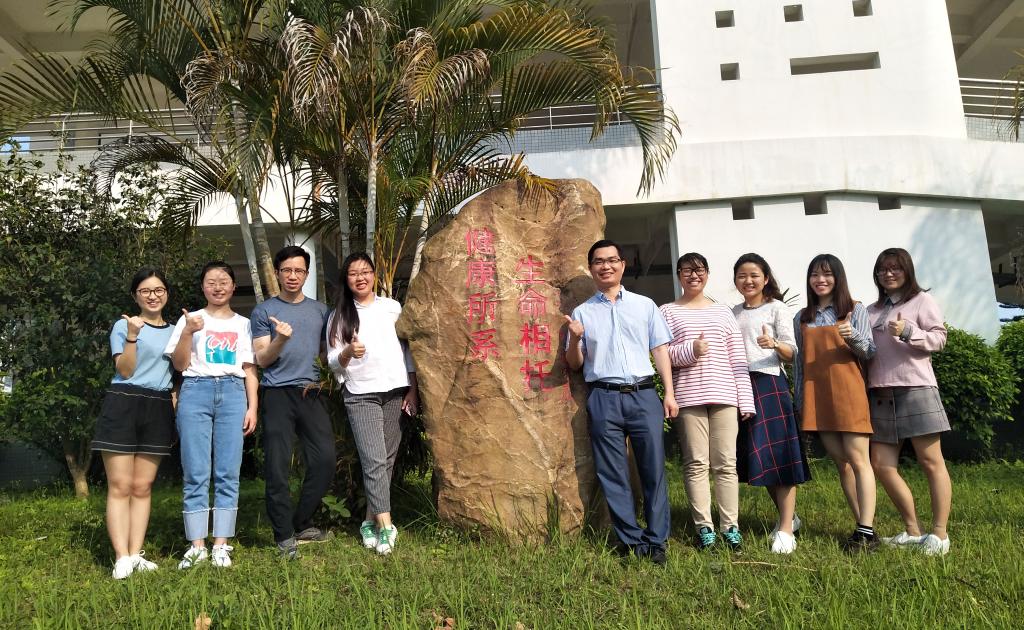Professor Xiong's team from the Institute of Aging Research has their latest research results published on Aging Cell (First District of Chinese Academy of Sciences, IF 9.304) , which is a top internatioal journal in the field of aging research recently. This study first revealed the mechanism of a circular intron RNA ciPVT1 on vascular endothelial cell senescence.

Endothelial cells (ECs) line the inner surface of the blood vessels and form a protective barrier with multifunctional properties. Endothelial cell senescence is associated with endothelial dysfunction which is an independent risk factor for the development of atherosclerosis and hypertension. Therefore, clarifying the underlying mechanism of endothelial cell senescence may contribute to the development of approaches to prevent and treat age-associated cardiovascular diseases. Circular RNAs (circRNAs) comprise a large class of endogenous biomolecules that are produced by a non-canonical splicing event called backsplicing. Several lines of evidence indicate that circRNAs are involved in the regulation of various physiological and pathophysiological processes. However, the role of circRNAs in endothelial cell senescence remains largely unknown. In this study, a novel circular intron RNA, ciPVT1 was found, whose expression was significantly down-regulated in senescent vascular endothelial cells and aging vessels. In proliferating endothelial cells, ciPVT1 knockdown induced a premature senescence-like phenotype, inhibited proliferation, and led to impairment in angiogenesis. Conversely, overexpression of ciPVT1 in old endothelial cells delayed senescence, promoted proliferation, and increased angiogenic activity. Mechanistic studies revealed that ciPVT1 can sponge miR-24-3p to upregulate the expression of CDK4, resulting in enhanced Rb phosphorylation. Consequently, ciPVT1 could potentially be used as a promising target to prevent endothelial cell senescence and its related vascular complications. This paper is the latest research achievement of Professor Xiong after an article related to vascular aging published on Molecular Therapy-Nuclear Acids this year. Aging Cell is an authoritative, peer-reviewed, and open access journal that aims to publish the highest quality, innovative research addressing fundamental issues in the biology of aging.

The study was supported by grants from the National Natural Science Foundation of China, the Natural Science Foundation of Guangdong Province, the program for Training High-level Talents of Dongguan, and the discipline construction project of Guangdong Medical University. Graduate students MinXue , Cai Mengyun and ShaoTong are the co-first authors of the paper, and the corresponding author is Professor Xiong Xingdong .

Paper link: https://pubmed.ncbi.nlm.nih.gov/34902213/
Writer: Shao Tong
Translator:Xiong Xingdong
Editor: Tang Zhipeng